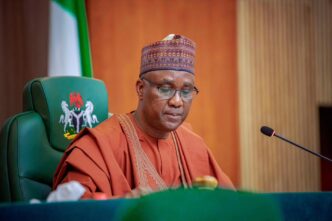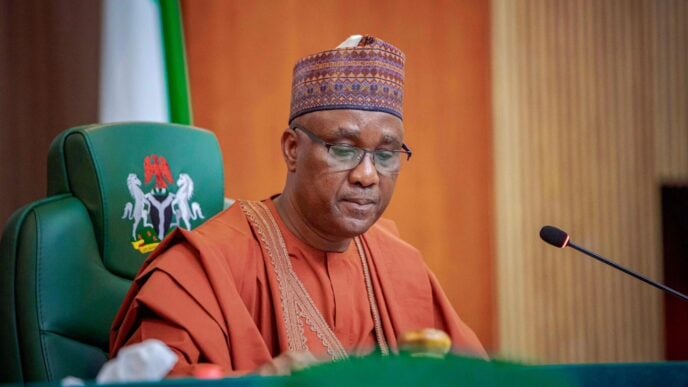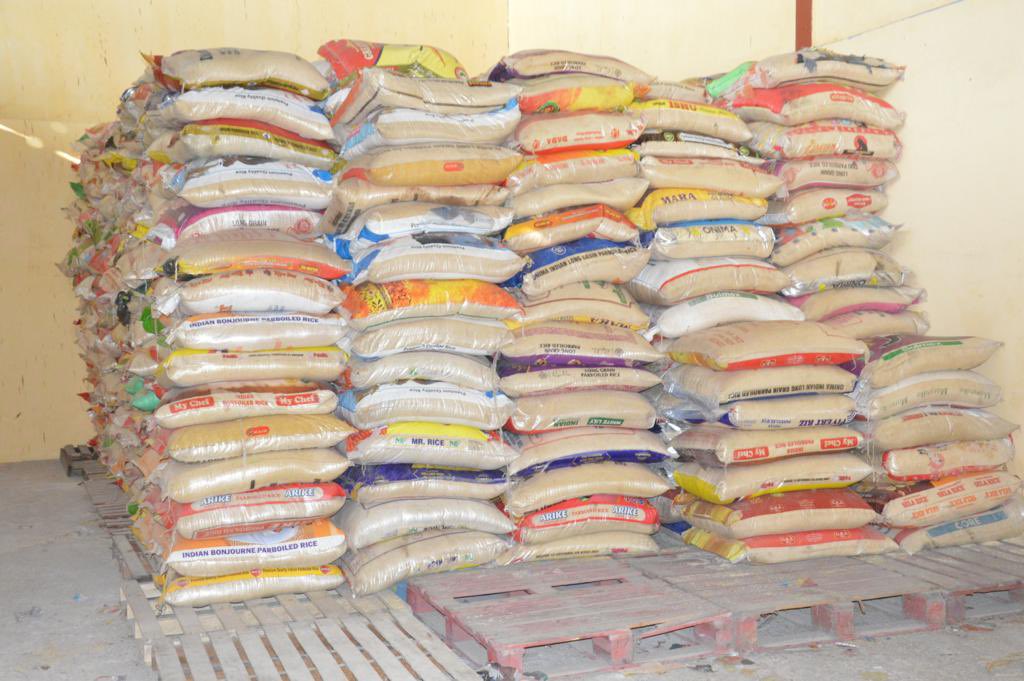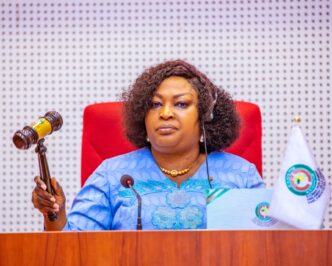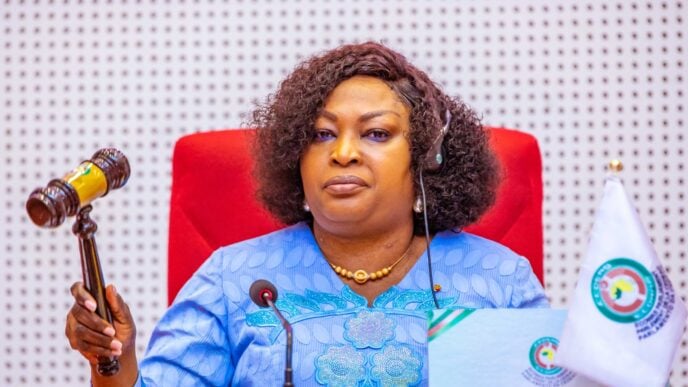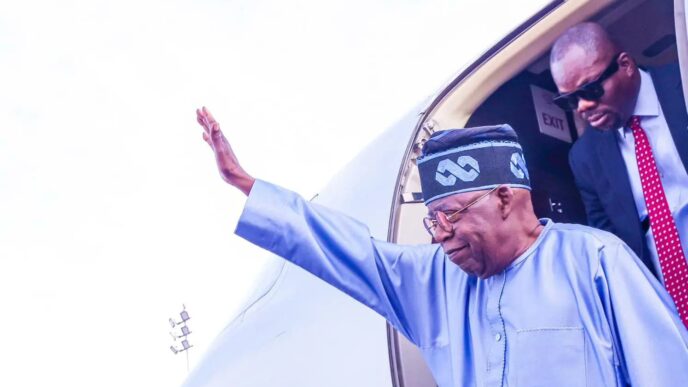On Monday, President Bola Tinubu approved the national policy on health workforce (HWF) migration.
Announcing the development, Ali Pate, coordinating minister of health and social welfare, said the policy is a comprehensive strategy to manage, harness, and reverse migration of healthcare workers.
Here are some of the takeaways from the policy.
INCENTIVES
Advertisement
The federal and state governments will develop a special incentive programme for all HWF serving in rural and underserved areas.
The federal and state ministries of health, in collaboration with federal and state ministries of finance, will create easy access to special credit facilities and tax holidays for health workers and other investors to establish functional private healthcare service centres.
The ministries of health, in collaboration with all relevant insurance agencies, will expand services to cover all healthcare workers.
Advertisement
The government and relevant ministries, departments and agencies (MDAs) will create modalities for special mortgage facilities for healthcare workers to easily own houses, cars, and other essential assets.
The federal and state ministries of health, in collaboration with the offices of the head of the civil service, the National Salaries, Income and Wages Commission, will periodically review healthcare workers’ salaries, benefits, pensions, and allowances.
The federal and state governments will ensure the provision of adequate equipment and supplies that will make working conditions conducive.
RETURN, RE-ADMISSION, AND REINTEGRATION OF MIGRATED HEALTH WORKERS
Advertisement
The federal and state governments, and other intervention agencies, will facilitate the provision of soft loans/grants to returned migrant health workers interested in establishing private health facilities.
Regulatory bodies will ensure mandatory continuing professional development programme (MCPD) and refresher and recertification for health professionals returning to practice in Nigeria.
Nigerians in Diaspora Commission (NiDCOM) will be strengthened to provide support to the HWF who return to the country.
Such areas of support shall include provision of relevant information, guide on career paths, investment and loans available in the health sector, housing opportunities, societal integration, education investments and any other areas that would enable seamless integration into the healthcare system.
Advertisement
CAPACITY BUILDING AND INSTITUTIONAL DEVELOPMENT
The ministry of health, in collaboration with states, local government and relevant regulatory bodies, will upgrade existing health facilities and provide the latest medical equipment for health workers to upgrade their skills and practices.
Advertisement
The ministry of health will collaborate with relevant agencies such as the Petroleum Trust Development Fund (PTDF), Tertiary Education Trust Fund (TETFund) and others to fund post-graduate training for the health workforce.
The government will promote and support lifelong learning and continuing professional development (CPD) for healthcare professionals.
Advertisement
This includes providing opportunities for skill upgrading, professional mentorship programmes and incentives for professionals to further education and specialisation.
The federal government will ensure adequate resource allocation to health training institutions including funding for technology integration and curriculum enhancement.
Advertisement
The government will set up a mandatory rural posting programme for the health workforce in the country. The workforce would be mandated to proceed for such postings annually in a bid to expose them to community health services.
WORK ENVIRONMENT AND STAFF WELFARE
The national human resources for health (HRH ) programme will work with health training institutions to create courses and topics on work-life balance in their training curriculum.
The national HRH programme, in collaboration with state ministries of health, will ensure adequate staffing in health facilities.
The federal ministry of health, in collaboration with the state ministries of health, will ensure the implementation of programmes to protect the mental health of staff at all levels.
Government at all levels will ensure access to necessary resources such as protective equipment, vaccinations, and health insurance to mitigate health risks associated with service provision.
Government will collaborate with relevant security agencies to provide adequate security in health facilities.
Government at all levels, in collaboration with National and State Health Insurance Authorities (NHIA), will mandate routine health check for the HWF.
Government will incentivise service in rural and underserved areas for the healthcare workers through career advancements in Nigeria or through increased chances of international migration, upon successful completion of a certain minimum years of service (beyond any mandatory service) in rural and underserved areas.
Government will incentivise an increase in the number of training positions in hospitals (public or private) with accredited slots to encourage hospitals to increase the number of positions available for residency or similar skill training programmes.
INTERNATIONAL COLLABORATION AND PARTNERSHIPS
Government will engage key destination countries to sign mutually beneficial agreements — in the form of a skills partnership.
The destination countries will invest in Nigeria by: (a) establishing new training institutions; (b) expanding the capacity of existing training institutions to prepare the health workforce needed to meet the needs of Nigeria and the international markets; and/or (c) improve the quality of existing institutions.
Destination countries will be encouraged to invest in building and expanding the quality and quantity of healthcare worker training, building, and modernising healthcare infrastructure, and strengthening the capacity of healthcare institutions in Nigeria.
The federal government will reintroduce the one year diaspora training programme for post graduate medical education.
The federal government, in collaboration with the National Postgraduate Medical College, will reintroduce the international collaboration with selected postgraduate medical colleges, which will allow indigenous HRH to acquire foreign based qualifications.
REGULATION AND MONITORING
There will be an established registry for domestic, foreign recruitment agencies and their agents, to be monitored and regulated by the ministry of health.
Regulatory agencies will be mandated to provide periodic data to the registry.
The government shall establish a jobs board that would work in tandem with professional health regulatory agencies to coordinate, monitor, collect data and produce evidence for policy on migration.
The ministry of health, in collaboration with the ministry of foreign affairs, will make it mandatory for all Nigerian HWF who have migrated for training, practice, or any other reason to provide required HRH data to be collected by the Nigerian embassies/high commissions/consulates in the host countries.
Add a comment

